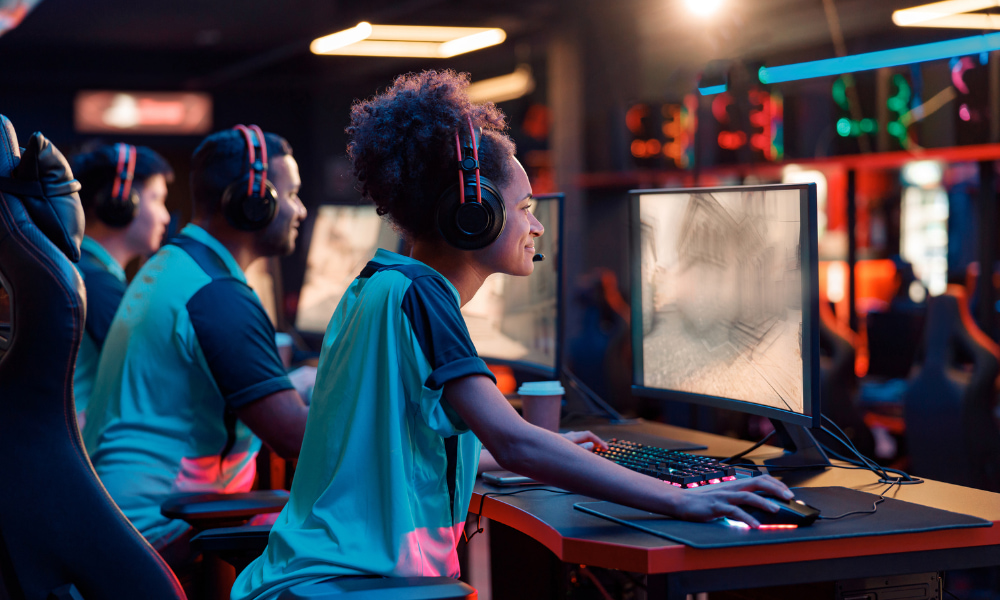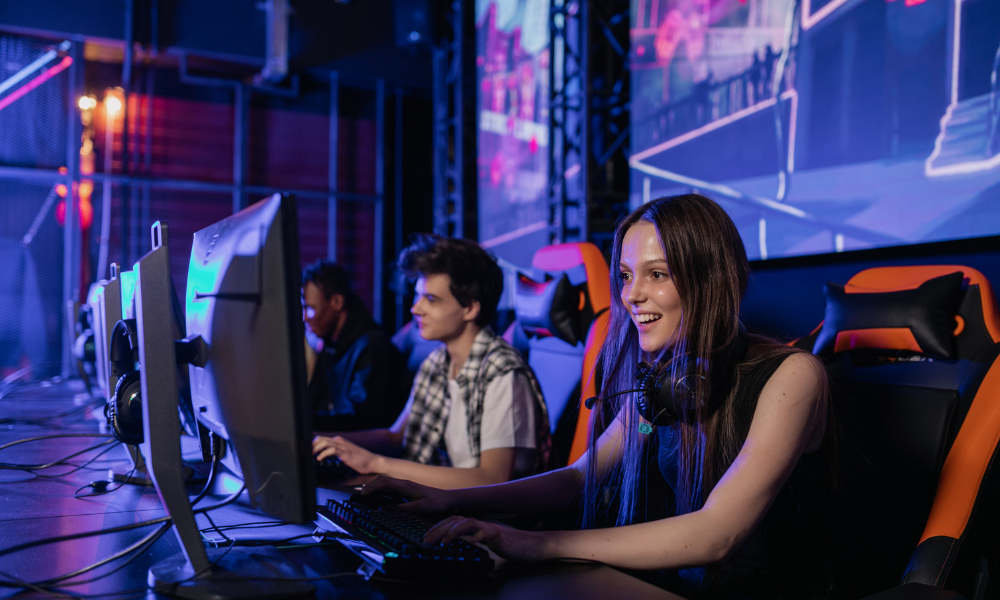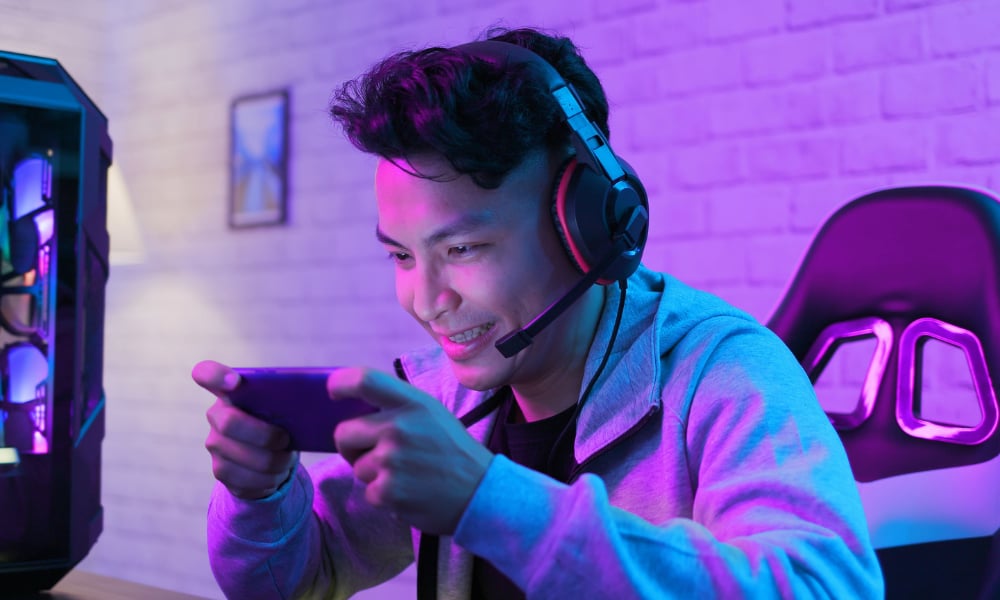eSports
How to Choose the Right eSports Game to Compete In
Ready to join eSports competitions? Learn how to choose esports game matches that suit your skills, schedule, and goals. Uncover expert tips for mobile and PC players in this starter’s guide.
Advertisement

There’s that eagerness when you think about stepping into eSports, right? Many gamers feel a buzz once they realize it’s possible to not just play, but compete professionally. Connecting your gaming passion to the journey to choose esports game makes the adventure even more exciting.
Knowing which eSports game is right for you shapes everything that follows—your practice time, potential teammates, and tournament paths. The games you try or even eliminate send you down very different roads. Getting this part right saves tons of time and stress down the line.
This guide breaks down how to choose esports game thoughtfully and confidently. You’ll pick up direct strategies, sample scenario scripts, and handy checklists designed for both desktop and mobile gaming. Get ready to find your winning match in the eSports universe.
Your Gaming Strengths: Map Them to the Right Titles
Matching what you’re good at with a game’s core demands is the fastest shortcut to success. Begin this section by making a quick self-inventory with a notepad or even a phone app.
Reflect on the specific mechanics you enjoy: Are you great with fast hand-eye coordination or patient strategy? Take those strengths and relate them to the eSports genres that reward them.
Evaluating Core Game Skills vs. Personality Type
Some thrive in high-pressure, reflex-driven shooters, while others excel at slow-burning tactics in card battlers or strategy games. Aligning core game skills with your temperament speeds up progress and boosts confidence.
If you prefer solo achievement, try 1v1 titles such as fighting games. If collaboration excites you, team-based MOBAs or battle royales might fit. Keep your temperament as a filter when you choose esports game candidates.
For example, someone who loves figuring out puzzles could try games with strong tactical layers. Create a mini script: “I want quick, smart wins, so I’ll test a CCG.” Stick to your strengths for best results.
Translating Analog Skills to Digital Play
Look at what you already excel in, outside screens. Quick decision-making in sports? Shooting or racing games mirror those instincts, making learning smoother.
If you naturally lead group activities offline, games requiring shot-calling or team coordination (think mobile MOBAs) will feel less intimidating. Transfer leadership habits to in-game strategy calls.
Analogy: Like someone picking up tennis after years of ping pong, building on related skills shrinks the learning curve. Write down two analog activities and match them to a genre on your list.
| Skill/Interest | Best-Fit eSports Genre | Platform | Decision Tip |
|---|---|---|---|
| Fast reflexes | Shooters | PC or Mobile | Start with free-to-play FPS titles |
| Strategic thinking | Card Games or MOBAs | Mobile/PC | Review beginner tutorials before choosing |
| Team leadership | MOBA, Battle Royale | Mobile/PC | Join practice lobbies for team play |
| Solo challenge | Fighters, Puzzle Games | Console/Mobile | Test short, ranked matches |
| Endurance focus | RTS, Sim Management | PC | Stream a session, gauge focus and stamina |
Narrowing Down Your Choices: Playstyle Filters and Real-Life Constraints
Zeroing in on the right game uses practical filters like available time, compatible hardware, and the style of competition you enjoy. This cuts out dozens of unsuitable options.
Use playstyle and lifestyle checklists to slice through the overwhelming list of eSports titles available on both mobile and PC.
Apply the “What Fits My Day?” Rule
Choose esports game contenders based on how gaming fits into your daily routine. If you only get short gaming windows, avoid games demanding marathon sessions.
- Pick short-session games for busy days: Find titles offering matches under 20 minutes so missing a session doesn’t hurt progress or disrupt streaks.
- Assess device flexibility: If you’re always mobile, prefer games with reliable smartphone versions ensuring no missed practice opportunities.
- Create downtime checklists: Make a “do/don’t” script, e.g., “Do play when waiting for class. Don’t queue during rush hour commutes.” Maximize efficiency and joy.
- Focus on notification settings: Games that respect your time with muteable notifications prevent distractions and help with daily gaming consistency.
- Set reminder systems: Use calendar alerts aligned with play times, keeping your practice streak unbroken even on hectic days.
Carve out a gaming routine by combining hardware limits and daily habits. Lock in steady progress—key for any serious player.
Handle Hardware and Connectivity Constraints
Choose esports game candidates based on your actual tech. Don’t pick PC-only games if you mostly use a mid-range phone.
- Run performance tests: Try out demo matches; check if your device records consistent frame rates without overheating or lag.
- Compare Wi-Fi vs. cellular: Seek titles with solid performance on your available connection; unreliable net costs victories.
- Demo controller setups: For mobile, pair controllers or test on-screen controls before diving into fast-paced genres like shooters or fighters.
- Confirm update sizes: Mobile players benefit from games with manageable update sizes; large downloads eat data and storage.
- Pick games with offline features: Some offer offline practice or customizable bots, letting you sharpen skills in weak-signal zones.
Always verify your environment matches game demands. Streamline practice: no more missed matches due to avoidable tech roadblocks.
Assessing Community Culture and Skill Progression
Understanding the social side of titles you shortlist is crucial. Evaluate the tone, friendliness, and supportiveness of each community as you choose esports game possibilities.
Community culture impacts your sense of belonging, motivation, and growth speed. Toxic or hostile communities sap energy, slowing your improvements.
Diving Into Community Channels
Spend a day in official Discords, fan forums, or Reddit threads for your top three games. Notice how new players are welcomed or ignored.
Positive, tip-sharing spaces usually reflect games with strong onboarding and better long-term retention. Ask a question and gauge the responses—do you get clear advice or memes?
Follow social cues, not just advertised features, when you choose esports game options—your peer group is vital for growth and enjoyment.
Tracking Skill Progression and Ladder Structure
Review official ladder structures, tutorials, and replay systems. Games with clear, step-by-step progression paths make improvement concrete.
Look for games with built-in coaching systems or replay analysis tools. These add genuine learning loops, especially valuable for self-motivated players.
As a test, aim for a simple goal—reach a specific ladder rank or win streak—and observe if clarity and feedback are built in at each stage.
Evaluating Tournament Ecosystems and Career Prospects
Mapping eSports tournaments helps you spot sustainable growth areas. Picking a game with open brackets, stable calendars, and visible pro circuits maximizes your upward mobility.
Start by listing your regional, national, and global tournament options for each candidate. Consider travel, online brackets, and seasonal cycles as you choose esports game possibilities.
Breakdown of Entry Points and Prize Pools
Check the accessibility of amateur events—do you need invitations, or can players enter freely? Accessible paths give you more realistic practice and exposure opportunities.
Visit tournament sites and check recent payouts. Consider both the size and reliability of prize pool distributions. Stable payouts usually mean stronger sponsor support and better tournament health.
Prioritize games with transparent registration steps. For mobile, focus on titles running robust online qualifiers, as they require less travel and gear.
Sample Scenario: Building a Seasonal Competition Plan
Draft a seasonal calendar, mapping where each game’s qualifiers and finals fall. Note any overlaps with academic schedules or personal commitments.
Use a simple script: “This year, I’ll play qualifiers in spring and finals in summer, using fall for practice blocks.” Planning up front avoids burnout and last-minute conflicts.
Seek out games with a steady flow of events, not just one peak tourney per year. Continuous competition nurtures steady growth as you try new stages and meta shifts.
Evaluating Monetization and Accessibility Factors
Financial investment and accessibility are real concerns for many. Examine purchase models, season passes, and cosmetic costs as you decide where to commit. Smart budgeting keeps frustration at bay.
When choosing a game, tally expected real-world expenses. Some titles monetize cosmetics, others use seasonal passes, while others sell premium upgrades—each approach matters when you choose esports game matches.
Comparing Free-to-Play vs. Premium Titles
Free-to-play games reduce entry risk but may push cosmetic or progression purchases. Experience the balance between earning and paying firsthand during your first week.
Premium paid games fetch a larger up-front cost, but typically feature lower-pressure monetization. Prioritize titles known for fair play and minimal pay-to-win mechanics when money is limited.
List out average seasonal costs for your two favorite game ideas. Match them to your monthly gaming budget to avoid spending regrets or surprise fees.
Mobile Game Access Strategies
Download and play mobile titles using guest accounts first. Focus on training features, F2P content, and ad frequency before linking permanent accounts or making in-app buys.
Investigate if the game is region-locked or needs VPN access. Some mobile eSports games run best in certain countries or require local accounts, making this a critical early step.
Check hardware requirements: some newer eSports games only run on flagship devices. Keep your selection based on your device’s age and regular update support.
Optimizing Team Search and Communication for Consistency
Working with others accelerates improvement and enjoyment. Use intentional, team-focused steps while you choose esports game options supporting regular collaboration and communication tools.
Map your preferred communication style to onboard-friendly team environments, whether that’s chat, voice, or preset emotes—especially for mobile play where typing is tricky during matches.
Checklist: Partnering Up for Team-Based Games
Start by joining in-game guilds or teams, completing introductory missions together. These first games show synergy and potential for regular play schedules, even across time zones.
Observe teammate response to mistakes—if you miss a play, are you encouraged, or ignored? Supportive teams speed up development and make setbacks more manageable.
Don’t be afraid to swap teams if the vibe feels negative or stagnant. The best progress happens in groups that celebrate wins and troubleshoot losses together without blame.
Scripts for Consistent Practice with New Teammates
Use these lines: “Let’s set a weekly practice game every Friday evening,” and “Can we share game replays and talk strategy on Discord afterward?” These routines keep everyone engaged and accountable.
When teammates hesitate to schedule matches, volley this direct question: “Would a Google Calendar invite or chat reminder help us all join at the right time?”
Rotate team roles during practices. Trying each position gives everyone a sense of the game’s demands and helps you pick your main role based on live feedback, not just guesses.
Conclusion: Moving Forward With Your Choice
Following a tangible, stepwise approach will keep the process of choosing your eSports game motivating instead of nerve-wracking. Strategic filters like skill match, hardware, and culture turn dreams into reality.
Returning regularly to your checklists and scenarios lets you tweak and tune your path, keeping progress clear even if game genres or schedules shift. Let each adjustment refine your confidence—and your achievement streak.
Let your curiosity and strengths chart your path. Explore new titles, test communities, and track your growth authentically. The game you pick will become your playground for massive skill, fun, and connection.

Mobile Games to Play Anytime
Mobile games offer the perfect escape during breaks, providing quick, rewarding gameplay and a variety of genres to suit any mood, anytime.
Trending Topics

The Best Virtual Reality Games for Action Players
Explore the best VR action games and maximize your immersion with tips on selecting titles, optimizing controls, and enhancing reflexes.
Keep Reading
How to Deal with Frustration in eSports Matches
Learn to manage eSports frustration with strategies like early identification, micro-breaks, and mindset shifts to stay focused and perform better.
Keep Reading
Women in eSports: Challenges and Notable Achievements
Women in eSports are making an undeniable impact, challenging stereotypes and shaping the future of mobile gaming with skill, strategy, and leadership.
Keep ReadingYou may also like

The Best RPG Experience on Mobile: Games You Need to Try
Explore immersive worlds with mobile RPGs! Choose your style, strategize progress, and make every decision count for the perfect adventure.
Keep Reading
The Role of Streamers in Popularizing eSports Worldwide
eSports streamers revolutionize gaming by teaching live, hosting global challenges, and inspiring fans to join the competitive scene.
Keep Reading
Mobile Sports Games: How to Go Pro Playing on Your Phone
Mobile sports games let you practice, compete, and improve on the go. Set goals, practice daily, and join tournaments for growth.
Keep Reading